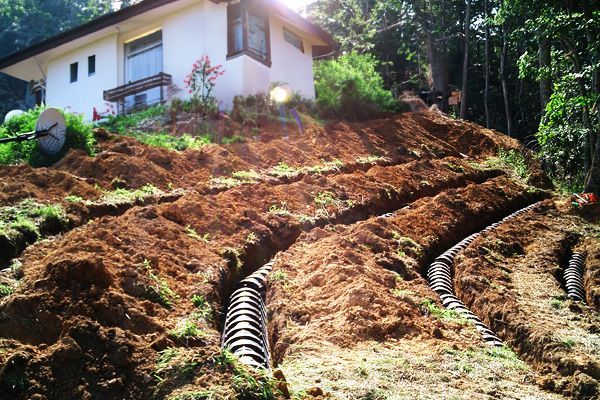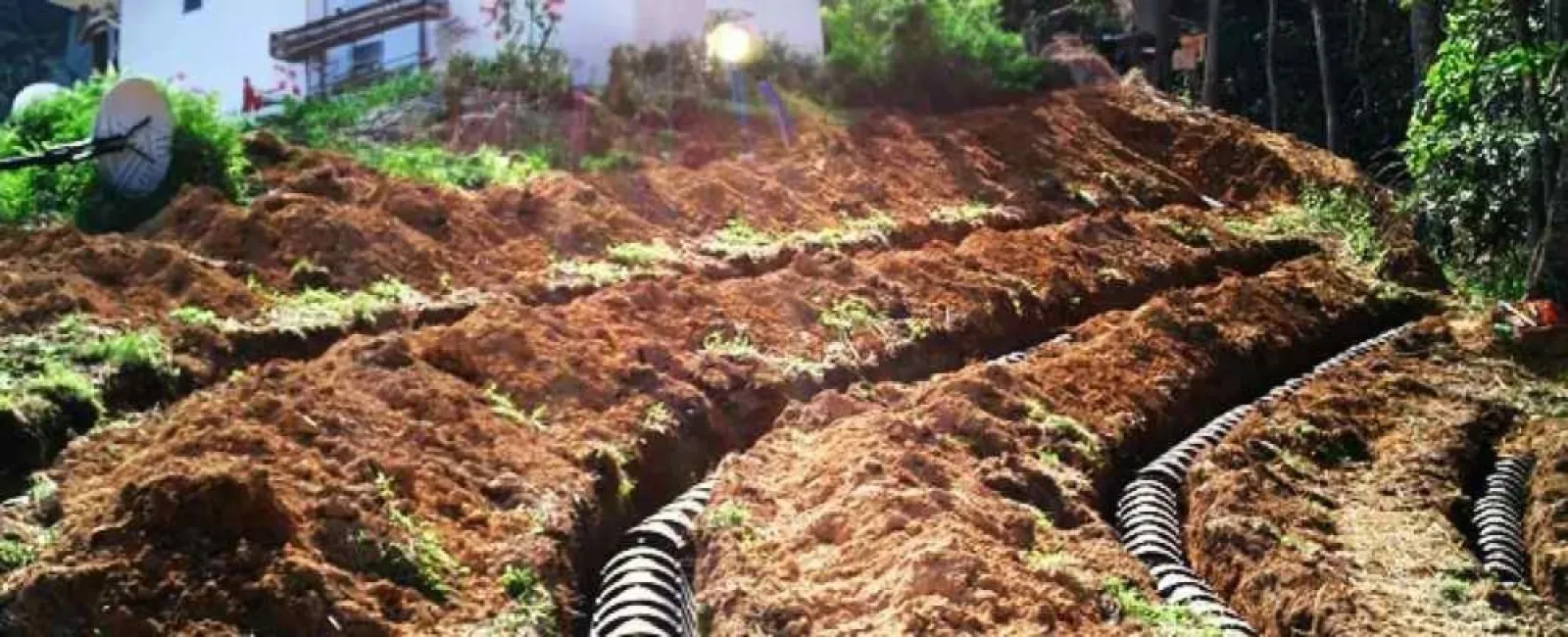When it comes to managing your home, understanding the fundamentals of your septic system is essential, especially if you're living outside the main sewage network. In this comprehensive guide, we'll dive into the basics of septic systems, including the septic tank drain field layout, Georgia septic drain field requirements, the depth of septic tanks, septic field lines, and other septic system basics.

What Is a Septic System?
A septic system operates as a standalone sewage treatment framework found in rural areas that are not connected to centralized city sewer systems. The system consists of a septic tank and a drain field. It treats household wastewater by separating solids from liquids, digesting organic matter, and filtering the effluent through septic field lines in the drain field.
Septic Tank Drain Field Layout
The septic tank drain field layout is a critical factor that affects the efficiency and functionality of your entire septic system. An ideal layout is carefully planned based on the topography of your land, the volume of wastewater, and soil absorption characteristics. Proper layout ensures optimal distance between the tank and the field lines, promoting effective wastewater treatment and reducing risks of contamination.
Georgia Septic Drain Field Requirements
In Georgia, specific Georgia septic drain field requirements must be met, which include guidelines on the construction, design, and placement of septic systems. These standards are designed to ensure systems are environmentally safe, prevent health hazards, and maintain public safety. Homeowners must consult with local health departments to ensure their septic system complies with these requirements, which cover aspects from the size of the drain field to the type of soil.
How Far Down Are Septic Tanks Typically?
It's important to note that installation depth can vary significantly. Elements such as soil type, groundwater levels, and frost lines influence this. Typically, a septic tank is buried deep enough to avoid freezing—usually between one and three feet beneath the surface, though deeper installations may be necessary in colder climates.
Maintenance of Septic Field Lines
Effective maintenance of your septic field lines is crucial for the longevity and efficiency of your septic system. This includes regular checks to ensure there are no obstructions or leaks. Homeowners should avoid heavy machinery over the field lines, keep tree roots at bay, and monitor the drainage area for soggy ground or unusually healthy grass, which can indicate leaks.
In addition to these preventative measures, it's important to consider the chemical balance within your septic system. Avoid introducing excessive household chemicals, such as strong detergents, bleach, and solvents, which can kill the bacteria vital for breaking down waste. Also, moderate the use of garbage disposals to prevent excess solids from accumulating in the tank, which can clog the septic field lines. Regularly scheduled professional inspections can help catch issues before they become severe, ensuring your system remains effective and minimizing potential repair costs. Engaging with professionals who understand local conditions and Georgia septic drain field requirements can provide peace of mind, knowing your septic system is maintained to high standards.
Septic System Basics
Every homeowner with a septic system should grasp basic maintenance tips to avoid costly repairs. These septic system basics involve routine septic tank pumping, generally every three to five years based on how frequently it's used, and yearly inspections. Additionally, it's crucial to be cautious about what is disposed of down your drains — refrain from flushing non-biodegradable materials and minimize the introduction of strong chemicals, which can interfere with the essential bacterial activity needed for your septic system to operate efficiently.
Furthermore, conserving water is another fundamental practice in septic system maintenance. Reducing water usage helps prevent the system from becoming overwhelmed, which can lead to malfunctions and early system failures. Simple actions like fixing leaks, using water-efficient fixtures, and spreading out laundry days can significantly decrease the water load on your septic system. Educating all household members about the importance of these practices can lead to more efficient septic system management and reduce the frequency of costly issues.
Importance of Regular Maintenance
Maintaining a consistent maintenance schedule is essential for prolonging the lifespan and efficiency of your septic system. This includes professional inspections, timely pumping, and following local guidelines for system care. Regular maintenance saves money in the long term and protects your property's value and the environment.
For detailed septic services or more information on maintaining your system, visit Scorpion Septic. Whether you need system installation, routine maintenance, or emergency repairs, we are here to help ensure your septic system functions seamlessly for years to come.

